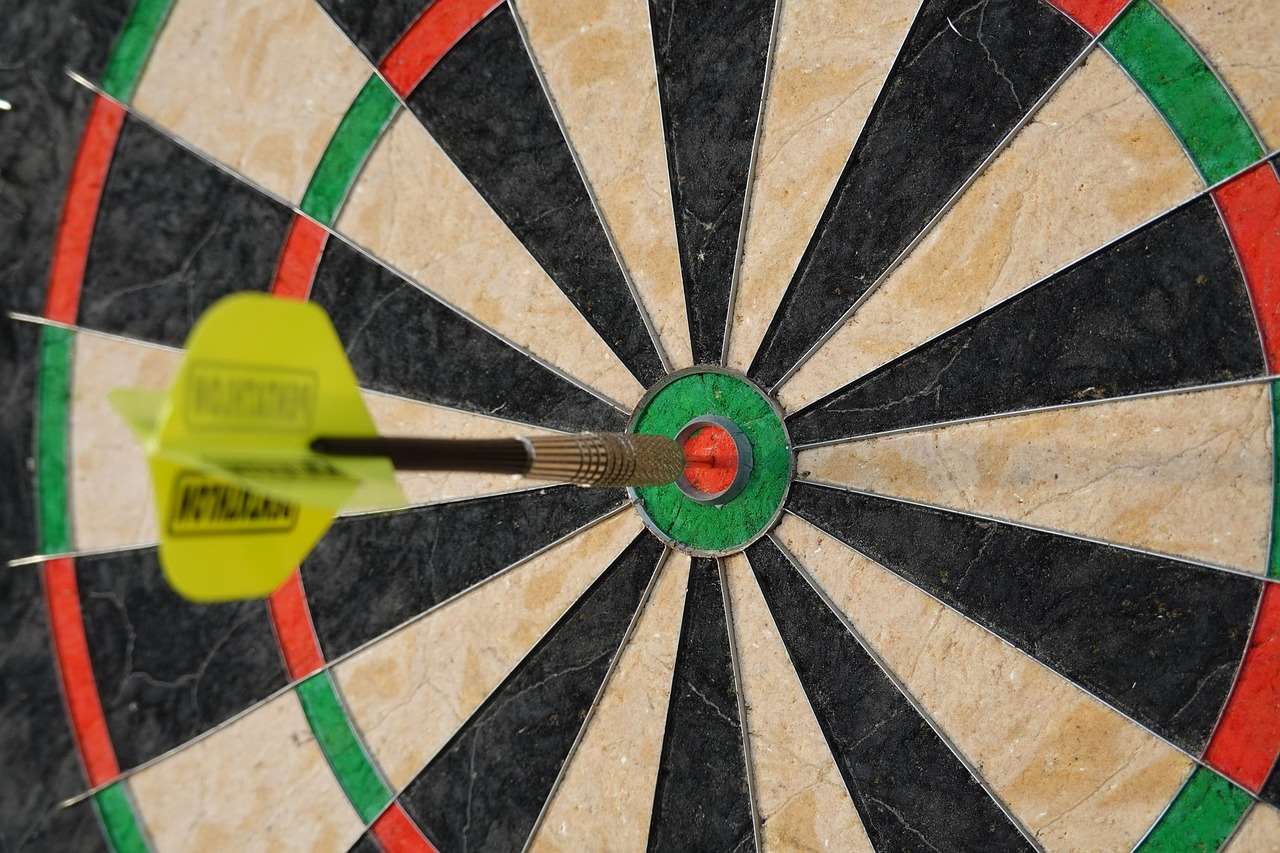The key to motivating players in a handicap league lies in fostering a sense of fair competition, recognizing individual improvement, and building a strong social environment. This article will explore practical strategies to boost participation, engagement, and overall enjoyment within your handicap league, covering everything from personalized goals to creative recognition systems.
⚠️ Still Using Pen & Paper (or a Chalkboard)?! ⚠️
Step into the future! The Dart Counter App handles all the scoring, suggests checkouts, and tracks your stats automatically. It's easier than you think!
Try the Smart Dart Counter App FREE!Ready for an upgrade? Click above!
Understanding the Psychology of Motivation in Handicap Leagues
Before diving into specific strategies for motivating players handicap league, it’s crucial to understand the underlying psychological factors that drive participation and enjoyment. Players are motivated by a variety of factors, including:
- Achievement: The desire to improve their skills and see tangible progress.
- Social Interaction: The opportunity to connect with others who share their interests.
- Recognition: Feeling valued and appreciated for their efforts and contributions.
- Fairness: Believing that the competition is equitable and that everyone has a chance to succeed.
- Enjoyment: Simply having fun and experiencing positive emotions while playing.
A well-designed handicap system addresses the issue of fairness directly, allowing players of different skill levels to compete on a more even playing field. However, fairness alone isn’t enough to guarantee motivation. It’s important to actively cultivate the other motivational factors listed above.

Setting Meaningful Goals for Individual Players
Goal setting is a powerful tool for motivating players. However, simply telling players to “improve” isn’t effective. Goals need to be:
- Specific: Clearly defined and measurable.
- Measurable: Quantifiable so progress can be tracked.
- Achievable: Realistic and attainable within a reasonable timeframe.
- Relevant: Aligned with the player’s individual skill level and aspirations.
- Time-bound: Having a specific deadline for achievement.
For example, instead of “improve your average,” a better goal might be “increase your average score by 5 points over the next month.” This provides a clear target and allows the player to track their progress. Encourage players to set both short-term and long-term goals. Short-term goals provide immediate motivation, while long-term goals provide a sense of purpose and direction. One way to ensure fair play is to learn How to make darts fairer with handicap rules.
Work with players individually to help them set goals that are challenging but attainable. Consider their current skill level, their dedication to practice, and their personal aspirations. Regular check-ins can help players stay on track and make adjustments as needed. Remember, the goal-setting process should be collaborative and empowering, not dictatorial.
Tracking Progress and Providing Feedback
Tracking progress is essential for reinforcing motivation. Use scorecards, spreadsheets, or dedicated apps to record player performance. Make the data readily accessible to players so they can see their improvement over time. Regularly provide feedback to players on their progress. This feedback should be:
- Specific: Focus on concrete behaviors and results.
- Positive: Highlight strengths and areas of improvement.
- Constructive: Offer suggestions for how to overcome challenges.
- Timely: Provide feedback soon after the performance.
Avoid generic praise or criticism. Instead, focus on specific examples of what the player did well or what they could do differently. For instance, instead of saying “good game,” you might say “your accuracy on the bullseye has really improved this month!”

Creating a Supportive and Social Environment
A strong social environment is crucial for motivating players handicap league. Many players participate in leagues primarily for the social interaction and camaraderie. Here are some ways to foster a supportive and social atmosphere:
- Organize social events: Host parties, potlucks, or other social gatherings outside of league play.
- Encourage team spirit: Create teams and encourage players to support each other.
- Celebrate achievements: Recognize individual and team accomplishments.
- Promote positive communication: Encourage players to communicate respectfully and supportively.
- Address conflicts constructively: Deal with any conflicts promptly and fairly.
Consider establishing a mentorship program where more experienced players can help guide and support newer players. This can be a great way to build community and improve skills at the same time. You might also consider adapting the Basic Darts Fundamentals for Beginners to assist the new players.
Building Camaraderie Through Team Events
Organize team-based competitions or social events to foster camaraderie and a sense of belonging. These events can be anything from friendly tournaments to themed parties. The key is to create opportunities for players to interact with each other outside of the pressure of regular league play. Make sure that team members are a mix of skill levels, which makes it a fair competition for all players. Don’t forget to include new players, and maybe consider adapting adapting darts rules for beginners.

Recognizing and Rewarding Success
Recognition is a powerful motivator. Players want to feel valued and appreciated for their efforts. There are many ways to recognize and reward success in a handicap league:
- Awards: Give out awards for most improved player, highest average, most bullseyes, etc.
- Prizes: Offer prizes for winning teams or individuals.
- Public Recognition: Announce achievements on social media, in newsletters, or at league events.
- Leaderboards: Display leaderboards that track player progress.
- Certificates: Present certificates of achievement for specific accomplishments.
Be creative with your recognition system. Consider recognizing not just the top performers but also players who have shown significant improvement, demonstrated good sportsmanship, or made positive contributions to the league. Acknowledging effort and dedication is just as important as recognizing natural talent.
The Power of Non-Monetary Rewards
While prizes are always appreciated, non-monetary rewards can be just as effective. Consider offering things like: bragging rights, personalized trophies, recognition on the league website, or the opportunity to be a team captain. These types of rewards can be particularly motivating because they tap into players’ desire for recognition and status.

Maintaining Fairness and Transparency in the Handicap System
The integrity of the handicap system is paramount to motivating players handicap league. If players perceive the system as unfair or inconsistent, they will quickly become discouraged. Therefore, it’s essential to:
- Use a clear and well-defined handicap system: Ensure that everyone understands how the handicaps are calculated.
- Regularly review and adjust handicaps: Update handicaps based on player performance to ensure that they remain accurate.
- Be transparent about the handicap process: Make the handicap data readily available to players.
- Address concerns promptly and fairly: Investigate any complaints about the handicap system and take corrective action as needed.
Consider forming a handicap committee made up of players and league organizers. This committee can be responsible for overseeing the handicap system, resolving disputes, and making recommendations for improvements. Transparency and fairness are critical components of a successful handicap league.
Adapting the Handicap System for Different Skill Levels
Be prepared to adapt the handicap system to accommodate players of different skill levels. You may need to use a more granular handicap scale for players at the lower end of the spectrum. You might also consider using different handicap systems for different game formats. Experiment with different approaches to find what works best for your league. Don’t hesitate to modify modifying rules for mixed-level dart players.

Gathering Feedback and Making Improvements
Regularly solicit feedback from players to identify areas for improvement. Use surveys, focus groups, or individual conversations to gather input on all aspects of the league, including the handicap system, the social environment, and the recognition program. Be open to suggestions and be willing to make changes based on the feedback you receive. A continuous improvement mindset is essential for maintaining a vibrant and engaging league.
Ask players directly what motivates them. This information can be invaluable in tailoring your motivational strategies to the specific needs and preferences of your league members. Consider implementing a suggestion box where players can anonymously submit their ideas for improvement. Remember, the goal is to create a league that is enjoyable and rewarding for everyone involved. Sometimes adapting adapting darts rules for small spaces: tips and tricks can make the space more inviting to play.
Conclusion
Motivating players handicap league requires a multifaceted approach that addresses both the competitive and social aspects of the game. By setting meaningful goals, creating a supportive environment, recognizing achievements, and maintaining a fair handicap system, you can create a league that is engaging, rewarding, and enjoyable for all participants. Remember to continuously gather feedback and make improvements to ensure that your league remains vibrant and thriving. Take action today to implement these strategies and unlock the full potential of your handicap league. Your efforts will not only increase participation and engagement but also foster a stronger sense of community and camaraderie among your players.
Hi, I’m Dieter, and I created Dartcounter (Dartcounterapp.com). My motivation wasn’t being a darts expert – quite the opposite! When I first started playing, I loved the game but found keeping accurate scores and tracking stats difficult and distracting.
I figured I couldn’t be the only one struggling with this. So, I decided to build a solution: an easy-to-use application that everyone, no matter their experience level, could use to manage scoring effortlessly.
My goal for Dartcounter was simple: let the app handle the numbers – the scoring, the averages, the stats, even checkout suggestions – so players could focus purely on their throw and enjoying the game. It began as a way to solve my own beginner’s problem, and I’m thrilled it has grown into a helpful tool for the wider darts community.